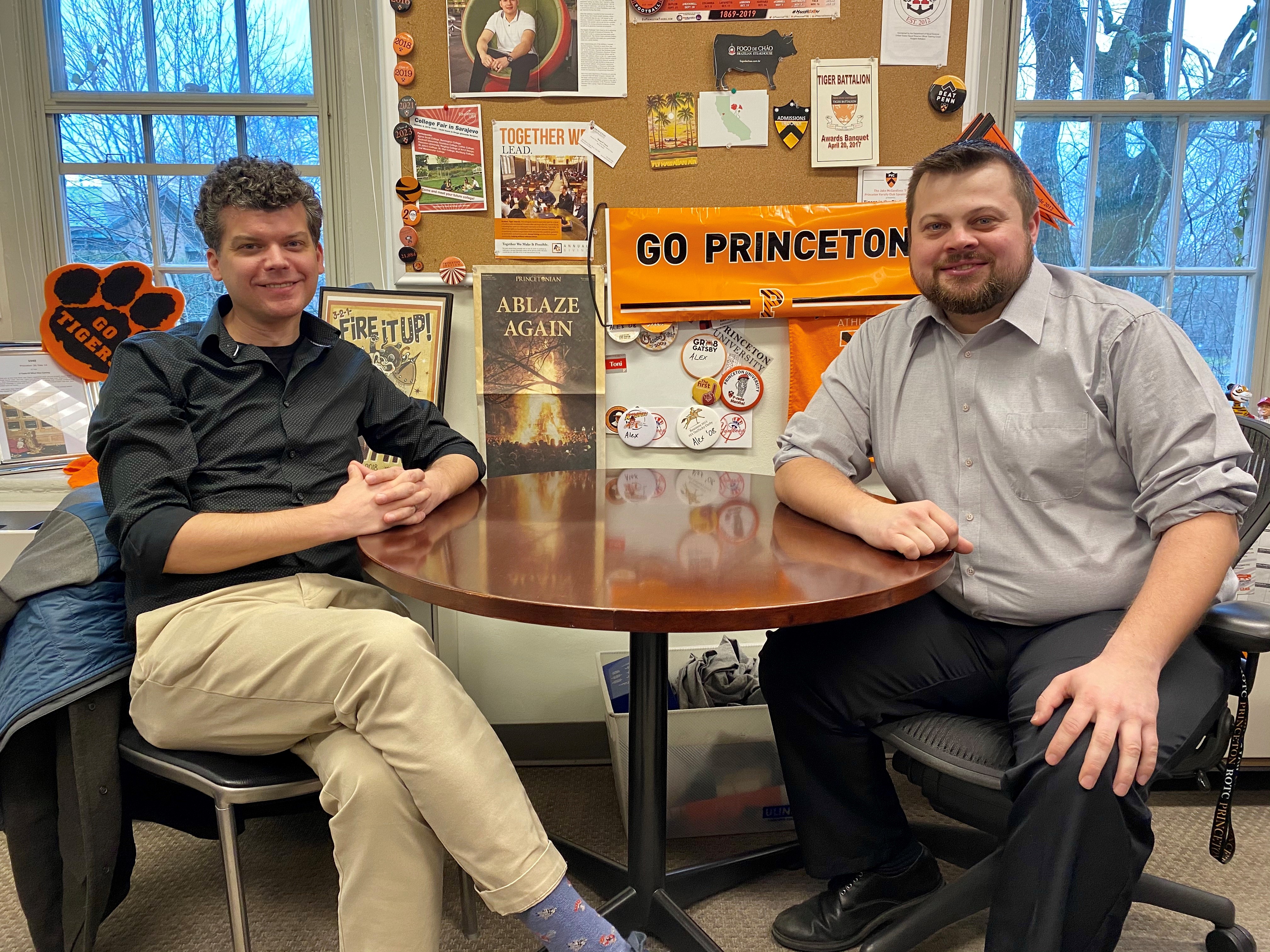Editor's Note: Dr. Keith Shaw, director of transfer, veteran and non-traditional student programs and Alex Bustin '08 , senior associate dean and director of transfer and military/veteran admission work together on Princeton's reinstated transfer program. Hear from them about their roles and their experience establishing and growing this program.
How has reinstating the transfer program impacted the Princeton community?
Keith: Alex and I are very proud of the students in our young transfer program and we are excited to welcome a new crew of Princetonians. In building this program, it was so exciting to use transfer admission as an access and inclusion initiative, and you can see that in the students we’ve enrolled.
Through Alex’s stewardship of transfer admission, it’s been humbling to see and hear the stories of so many fantastic candidates from all over the world with such a range of backgrounds and experiences. The transfer program has helped us to see a rise in our student veteran population and they’ve been quick to form a tight community and become a visible presence on campus. We’re also thrilled with our community-college scholars – many of whom arrived on campus with inspiring academic achievements already under their belts, such as the Jack Kent Cooke Undergraduate Transfer Scholarship.
We’ve had the opportunity to meet and understand the perspectives of students who have attended various colleges or have had non-traditional trajectories. Our students have worked in various industries or in the military, giving us just a glimpse of what kind of impact they can have in enriching the student body once they get to campus.
Are there any misconceptions regarding the transfer program?
Alex: A common concern we usually hear from prospective students relates back to their academic history. Since reinstating the transfer program, we’ve seen a wide range of applicants. Some who have always done well academically throughout high school and college and others who didn’t hit their stride until much later – maybe even after multiple attempts at college. We recognize that different students reach their academic prime at different times for any number of reasons. You absolutely can be a competitive applicant for our transfer program if you have a strong record over the most recent semesters. We’re admitting our students and community members for who they are now and not necessarily who they used to be.
What has been one of the most rewarding parts of reinstating the transfer program?
Keith: My favorite job responsibility has been teaching the incoming cohort of transfer students in their customized writing seminar each fall, where they cultivate the intellectual practices of emerging scholars. Just as important, this writing seminar enables our students to build a community of their own. As their instructor I have the opportunity to watch a classics major from a local community college refine a thesis statement with a Navy intelligence analyst, or a Marine special ops veteran spar over the finer points of Orwell with the Miami-Dade Jack Kent Cooke Scholar. This provides a window into what makes the program so special. Our transfer students’ varied, informed and mature viewpoints are in high demand on campus. As we look forward to their academic and professional successes, we’re excited and curious about what Princeton will learn from them.
How has Princeton helped non-traditional students transition to campus?
Alex: Helping to make Princeton a comfortable home for transfer students with families has been a welcome and ongoing challenge. Several of our transfers moved here with spouses and children and that means a cultural transition for an entire family, not just an individual student. (In their first year, one student even welcomed a newborn into their family on the first day of classes.) While there’s more to be done, we're grateful for the effort of so many campus offices that have invested to make this transition as smooth as possible for these families including Housing, Financial Aid and the Residential Colleges, who have all been working hard to provide the best possible options.
We are looking forward to seeing how the transfer program will continue to grow in the coming years and we are excited to welcome the new class of transfer students to the Princeton community.







